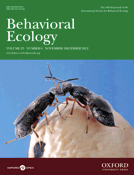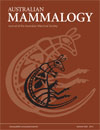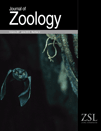
ACTA ETHOLOGICA
metrics 2024
Unveiling the Secrets of Animal Behavior and Evolution
Introduction
ACTA ETHOLOGICA, published by Springer Heidelberg, is a leading journal in the fields of Animal Science and Zoology, as well as Ecology, Evolution, Behavior, and Systematics. With an ISSN of 0873-9749 and an E-ISSN of 1437-9546, this journal has established itself as a notable platform for innovative research and review articles since its inception in 1998. As of 2023, it holds a Category Quartile of Q3 in both its primary categories, showcasing its commitment to advancing knowledge within these scientific domains. The journal aims to facilitate the dissemination of cutting-edge research on animal behavior and ecology, fostering collaboration among researchers, professionals, and students. While it does not currently offer Open Access options, ACTA ETHOLOGICA remains crucial for those looking to stay informed about the latest developments and trends in ethology. For inquiries, the journal's editorial office is located at Tiergartenstraße 17, D-69121 Heidelberg, Germany.
Metrics 2024
 0.31
0.31 1.10
1.10 1.10
1.10 36
36Metrics History
Rank 2024
Scopus
IF (Web Of Science)
JCI (Web Of Science)
Quartile History
Similar Journals

BEHAVIORAL ECOLOGY
Unraveling Evolutionary Mysteries Through Behavioral InsightsBehavioral Ecology, published by Oxford University Press Inc, stands as a premier journal in the field, bridging the disciplines of animal science and ecology. With an impressive impact factor reflecting its rigorous scholarship, this journal ranks in the top quartile (Q1) for both Animal Science and Zoology as well as Ecology, Evolution, Behavior and Systematics, positioning it among the elite academic publications. Since its inception in 1990, Behavioral Ecology has served as a vital platform for cutting-edge research that explores the ecological and evolutionary implications of animal behavior, catering to a diverse audience of researchers, professionals, and students. The journal's commitment to high-quality peer-reviewed articles ensures that it remains a key resource for advancing knowledge in the field. Readers can access the journal through institutional subscriptions for comprehensive insights that drive ongoing research and discussion.

Mammal Research
Pioneering Research in Animal Science and EcologyMammal Research, published by Springer Heidelberg, is a prominent academic journal dedicated to advancing knowledge in the fields of Animal Science, Zoology, Ecology, Evolution, and Behavior. With an impressive Q2 ranking in both Animal Science and Zoology and Ecology, Evolution, Behavior and Systematics as of 2023, this journal is an essential resource for researchers and professionals seeking to publish innovative findings that contribute to our understanding of mammalian biology. The journal operates under an Open Access model, allowing a wide audience to access and engage with high-quality research articles. Converging between 2015 to 2024, Mammal Research serves as a vital platform for scholarly discourse, promoting rigorous scientific inquiry and collaboration among experts and students alike in the fascinating study of mammals.

AUSTRALIAN MAMMALOGY
Advancing Knowledge in Animal Science and EcologyAustralian Mammalogy, published by CSIRO PUBLISHING, is a pivotal journal in the fields of Animal Science and Zoology as well as Ecology, Evolution, Behavior and Systematics. With its ISSN 0310-0049 and E-ISSN 1836-7402, this esteemed journal has been instrumental in disseminating critical research findings since 2000, and continues to evolve up to 2024. Ranked in the Q2 quartile of both its categories for 2023, it showcases a diverse array of studies that contribute to understanding Australia’s unique mammalian fauna and its ecological dynamics. Researchers, professionals, and students will find valuable insights in its peer-reviewed articles, which are essential for advancing knowledge in these essential scientific disciplines. Located in Australia at UNIPARK, Locked Bag 10, Clayton, VIC, this journal remains committed to fostering scholarly communication within the global scientific community.

JOURNAL OF ZOOLOGY
Advancing knowledge in animal biology and ecology.JOURNAL OF ZOOLOGY, published by Wiley, stands as a premier scholarly journal in the fields of Animal Science and Zoology, renowned for its outstanding contributions to the knowledge of animal biology and ecology. With an impressive impact factor and a strong ranking in the Q1 category for Animal Science and Zoology, as well as Q2 for Ecology, Evolution, Behavior, and Systematics, the journal rigorously engages with both foundational research and groundbreaking discoveries since its inception in 1830. Located in Hoboken, New Jersey, this journal is dedicated to fostering the academic community's understanding of zoological sciences, providing access to important research that shapes wildlife conservation efforts and ecological studies. Although the journal does not currently offer open access options, it continues to attract significant attention, as evidenced by its strong Scopus rankings in related categories. Researchers, professionals, and students will find invaluable resources in the JOURNAL OF ZOOLOGY to advance their understanding of animal life and the ecological challenges it faces today.

ZOOLOGICHESKY ZHURNAL
Advancing the frontiers of zoological knowledge since 1950.Zoologichesky Zhurnal, a prominent journal in the field of Ecology, Evolution, Behavior and Systematics, has been a vital publication since its inception in 1950. Published by MAIK Nauka-Interperiodica in the Russian Federation, this journal has established a notable reputation in disseminating scientific research and advancing knowledge in zoology. With its coverage spanning from 1950 to 2023, and a specific convergent focus during 1982-1983, this journal contributes significantly to the ecological and evolutionary sciences, even though it currently holds a Q4 classification in the 2023 category quartiles, indicating its niche positioning among peers. Researchers and students engaged in the study of biological sciences, particularly those interested in the dynamics of ecosystems, behavior of species, and evolutionary processes, will find valuable insights and original research articles within its pages. While access to this esteemed journal is not open, it remains an essential resource for those seeking to deepen their understanding of zoological sciences.

BELGIAN JOURNAL OF ZOOLOGY
Connecting Researchers with Cutting-Edge Zoological Insights.The BELGIAN JOURNAL OF ZOOLOGY, published by the Royal Belgian Zoological Society, serves as a prominent platform for advancing research in the field of zoology. With an impact factor reflecting its status within the academic community, this journal rigorously publishes innovative studies and reviews, covering a broad spectrum of topics related to animal science and zoology. As an esteemed outlet, the journal ranks in the Q2 category for both Animal Science and Zoology, demonstrating its relevance and contribution to the field, as indicated by its Scopus ranking of 255 out of 490. Although it operates under a subscription model, the journal is committed to disseminating high-quality research that can shape contemporary understanding of animal biology and ecology. With a publication history dating back to 1990 and extending through 2024, researchers, professionals, and students are encouraged to engage with its rich content, which is vital for ongoing discourse and discovery within zoological sciences.

Zoological Letters
Empowering the global scientific community through collaboration.Zoological Letters, published by BMC, is a premier open-access journal dedicated to advancing the field of zoology and animal science. Since its inception in 2015, the journal has established itself as a critical platform for researchers to disseminate their findings and contribute to the ongoing discourse in this vibrant discipline. Based in the United Kingdom, Zoological Letters boasts an impressive Q2 category ranking in Animal Science and Zoology for 2023, placing it within the top 25% of journals in the field. With a Scopus rank of #116 out of 490, representing the 76th percentile, it showcases the influence and reach of the research published within its pages. The journal’s substantial focus on contemporary issues and methodologies ensures that it is a vital resource for academics, professionals, and students alike, fostering innovation and collaboration throughout the global scientific community. Open access since 2015, Zoological Letters is committed to making scientific knowledge accessible, thus enhancing the visibility and impact of research in zoological studies.

Journal of Vertebrate Biology
Enhancing global awareness through scientific inquiry.Journal of Vertebrate Biology, a reputable publication established by the Institute of Vertebrate Biology in the Czech Republic, serves as a vital platform for research across the fields of Animal Science and Zoology, Aquatic Science, and Ecology, Evolution, Behavior and Systematics. With its ISSN 2694-7684 and a commendable 2023 Q2 ranking in multiple categories, this open-access journal embraces innovative scientific inquiry and fosters academic discourse. The journal's commitment to disseminating high-quality research is reflected in its Scopus rankings, positioning it within the top quartile in several impactful areas. As it continues to converge its focus until 2024, researchers, professionals, and students alike are encouraged to engage with cutting-edge studies that advance our understanding of vertebrate biology. This publication stands out not only in its scholarly contributions but also in enhancing global awareness of biodiversity and conservation issues.

Movement Ecology
Unveiling the secrets of movement in a changing world.Movement Ecology is a premier peer-reviewed journal published by BMC, dedicated to advancing knowledge in the vibrant field of ecology, evolution, behavior, and systematics. Established in 2013, this open-access journal provides a platform for the dissemination of innovative research on animal movement and its ecological implications, making critical findings available to a global audience since 2014. With its impressive Q1 ranking in the 2023 category of Ecology, Evolution, Behavior, and Systematics and a commendable Scopus ranking in the 87th percentile, it serves as a leading source of information for researchers, professionals, and students alike. The journal aims to foster interdisciplinary collaboration and promote the application of movement ecology to conservation and management practices, significantly impacting biodiversity research. Located in the vibrant city of London, Movement Ecology continues to shape the landscape of ecological research through its commitment to high standards and accessibility.

BEHAVIOUR
Delving Deep into the World of Animal BehaviorBEHAVIOUR, published by BRILL, is a distinguished academic journal that serves as a pivotal platform for research in the fields of Animal Science and Behavioral Neuroscience. With a legacy dating back to 1948, this journal has been a cornerstone for scholars and practitioners seeking to explore the complexities of animal behavior, offering insights that are vital for both academic inquiry and practical application. The journal, which has an ISSN of 0005-7959 and E-ISSN of 1568-539X, is characterized by its rigorous peer-review process and commitment to disseminating high-quality research. Currently, BEHAVIOUR holds a Q2 ranking in Animal Science and Zoology and a Q4 ranking in Behavioral Neuroscience for 2023, indicating its respectable standing in the academic community. Researchers and students alike can access the journal through institutional subscriptions, and while it does not offer Open Access options, its importance in fostering understanding of behavioral patterns across species is indisputable. This journal continues to be an essential resource for those looking to deepen their knowledge and contribute to the evolving discourse in animal behavior.